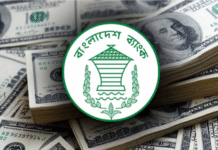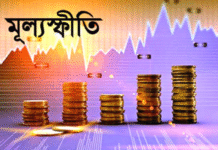Image credit globalvillagespace.com
by Kamal Uddin Mazumder 19 Jauary 2023
World politics, diplomacy, economy is all in turmoil. Not only Russia-US, from Uganda on that side to Bangladesh on this side, no one is exempt from this pressure. The continued strength of the US dollar since the Cold War is hurting developing countries. In the midst of this global turmoil, local pain is also widespread in the country. As a result, the definition of enemy-friend is changing. Enemies are friends, friends are becoming enemies. Different countries are also practicing the strategy of conquering everyone at their own convenience without leaving anyone as an enemy or an ally. There is no opportunity for right-left, democracy-socialism, liberal-hardline choices. In doing so, a new diplomacy of stepping not only on two boats, but on various boats is running in all the poles of the world.
International and regional organizations including the United Nations, World Bank-IMF have been giving warnings for a long time. At least a year ago, one third of the world’s countries are worried about falling into recession this year due to various reasons including epidemics and wars. Their message also talks about Bangladesh’s crisis due to trade deficit, rising fuel costs, rising inflation and dwindling foreign exchange reserves. The World Bank had a glimpse of that. Prime Minister Sheikh Hasina did not ignore it. However, she claimed that there will be no food shortage in Bangladesh despite the hardships. She has urged everyone to be frugal and economical as well as to increase their own production so that the heat stress of the global recession will be reduced. Said not to keep any land uncultivated. She ordered the administration to find uncultivated land. And as a step to increase state funds and foreign exchange reserves, IMF loans have been taken to deal with increased inflation. The government is making no effort to rein in the rampant rise in prices of daily commodities. Success does not measure up to that level. There are some differences in the reality of Bangladesh in this world situation. On one side, the election is ahead, on the other side, geopolitics. Bangladesh is a big factor in sub-regional politics. The height is also quite high. The propaganda of powerful countries’ embassies in Dhaka is also a hot sign of the cold war.
One of the world’s superpowers, from the United States, Russia, China, the United Kingdom, Canada to Japan-Germany, Bangladesh now has a different value. In its chemistry, Excellencies are not just coming and going with any matter of Bangladesh. They also have an agenda. Jhanu diplomats have a wealth of information and analysis on this matter. With that urge, as soon as one foreign guest leaves, another one comes running. Sometimes there is one person or another person. US President Joe Biden’s Special Envoy-Adviser Rear Admiral Eileen Laubacher left as soon as the country’s High Voltage Diplomat Assistant Secretary of State Donald Lu arrived. Again, during Laubacher’s stay in Dhaka, China’s new foreign minister Xin Gang made a 1-hour stopover in Dhaka on his way to Africa. IMF DMD Antein also visited. In the midst of this, the arrival message of UN Ambassador Felipe González Morales. He is coming on January 20. Stay for a few days. These royal guests are not coming here to dine or swim. Bangladesh also needs many people now.
It was started by the Corona epidemic. Then the Russia-Ukraine war. Both the countries are not the only partners in the good and bad of this war. Not just the participants either. All corners of the world are victims of it. The war has also upset global economic calculations. Due to this, the increase in commodity prices, the increase in interest rates in different countries of the world and the spread of new corona virus in China have threatened the world economy. China has recently moved away from its ‘zero covid’ policy despite the resurgence of the coronavirus. They want to get the economy moving again. As a result, China, the world’s second largest economy, may face a difficult situation this year. The next few months are tough times for China. As a result, China’s economic growth may have a negative impact. If there is a negative impact on China’s economy, it will also affect the growth of the world economy. Again, if the US economy shrinks, it will have an impact on various Asian countries including China, Vietnam. In spite of this, Bangladesh is in a relatively advantageous position in some sectors and indicators. Its a garment industry. While the share of other South Asian countries has decreased in the global apparel market, only Bangladesh has increased. In spite of various tensions, the gross domestic product (GDP) per capita has increased three times since independence. Discrimination has also increased.
There was a glimpse in 2021 that the outgoing year 2022 will not go well. The warning message about the current 2023 is from the beginning of 2022. The Ukraine-Russia war, which began in the last week of February 2022, has so far not ended any worries about the economy, but rather increased uncertainty. The war was the biggest blow to the economy while the world was on the road to recovery due to the weakening of Covid-19. It increases the folds of the forehead. 2022 is supposed to be a turning point for economic recovery, but the reality is more difficult. In an attempt to avoid this collision, the field of running in the high race is being fixed. Emphasis on increasing revenue. Under this, some steps have been taken to increase the duty. This has reduced the import of some luxury goods, though not significantly. Several cost-saving measures have also been taken. Efforts to increase expatriate income are not decreasing. Inflation and currency value have overpowered Bangladesh. The British pound was the intermediate currency for Bangladesh for 12 years after independence. In 1983, the US dollar was chosen instead of the pound. And from May 2003, the floating exchange rate of Bangladeshi currency was introduced. From this time the currency exchange rate is supposed to be determined on the basis of demand and supply. But in reality, Bangladesh Bank has controlled the exchange rate through dollar sales and supervision.
Depreciation of the currency means that the economy has weakened – from such a psychological concept, Bangladesh has artificially maintained the value of the currency. When the trade war with the US started in 2018, China heavily devalued its currency to maintain its position in the export sector. Almost all competing countries devalued their currencies. But Bangladesh still maintained the rate of money. Bangladesh is in trouble with the retained exchange rate. Bangladesh has to import products at higher prices due to the increase in the global dollar rate. Again, due to the low exchange rate, the expatriate income also comes down through the legal route. As a result, Bangladesh Bank was forced to devalue the rupee to increase the dollar rate.
Before the Corona outbreak, China had heavily devalued its currency to maintain export capacity. China depreciated by 33 percent from 2015 to 2019. Due to China’s decision, competing countries were also forced to follow the same path. Then it was called currency war. Bangladesh was an exception. Still the central bank maintains the value of the money. Now the government is on the way to get rid of different ideas there too. The world has seen the noise of the economic sphere for a long time. Trying to destroy that goal now. Bangladesh is very cautious in this journey. Before Corona, the identity of Bangladesh was a high growth country. At the same time, Bangladesh is a country with low tax-GDP ratio. Bangladesh’s tax-GDP ratio is now 10.09 percent. And in Nepal this ratio is 24.02 percent and 13.03 percent in Laos. Only bankrupt Sri Lanka lags behind in the tax-GDP ratio, at 8.9 percent. Because of this low revenue collection, a large part of Bangladesh’s stimulus funds during the Covid period were mainly dependent on bank loans. Again, due to low income, various sectors including fuels are not able to be cooled with subsidies. In such a situation, balance and caution are moving in both directions.










